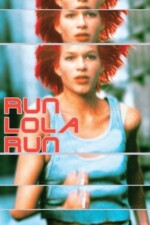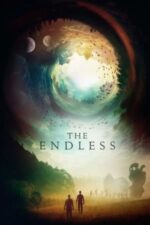Stuck on Repeat: Why We're So Fascinated by Time Loops in Film
Okay, so you know that feeling when you’re stuck in a rut? Like Groundhog Day, but maybe not as charming? Well, filmmakers have been tapping into that very sensation for decades, and the “time loop” narrative has become an absolute staple. It's more than just a gimmick; it’s a surprisingly potent way to explore everything from love and redemption to identity and existential dread.
What is a time loop, really? Simply put, it’s when a character (or characters) finds themselves reliving the same period of time repeatedly. Think Bill Murray's Phil Connors in Groundhog Day, forced to endure Punxsutawney’s annual celebration over and over again. That film, while not explicitly listed among our examples, is arguably the granddaddy of the modern time loop trope. It established so much of what we now expect: initial frustration, attempts at hedonism, then a gradual shift towards self-improvement and connection.
But the concept has evolved a lot since 1993. Take Sore: Istri Dari Masa Depan, for instance. The sci-fi twist – a woman from the future trying to fix her partner’s life – adds layers of complexity. It's not just about personal growth; it's about manipulating someone else's destiny, and the ethical implications that come with it. Then you have Round and Round, which uses the loop as a catalyst for family reconciliation during a Hanukkah party. The pressure cooker environment—a single night, repeated endlessly—forces characters to confront uncomfortable truths and re-evaluate their relationships. It’s like being given infinite do-overs to get things right, but with the added anxiety of knowing you've already messed up countless times.
And it’s not always about heartwarming resolutions! The Hourglass takes a decidedly darker turn, trapping an assassin in a cycle of violence and forcing them to confront their own morality. It’s a fascinating exploration of how someone might react when stripped of consequence – would they become even more ruthless, or desperately seek escape?
What I find so compelling about the time loop narrative is its inherent potential for both comedy and profound introspection. The Swear Jar uses it to examine interpersonal conflict within a group project—a surprisingly relatable scenario! And Spark, with its romantic twist, demonstrates how obsession can warp perception and trap someone in a psychological prison.
Ultimately, these films aren't just about the mechanics of time travel; they’re about us. They hold up a mirror to our own lives, forcing us to consider: What would we do if given a chance to relive a day? Would we change anything? And what does it truly mean to learn from our mistakes?
So, next time you're looking for something that will make you think and entertain you, dive into the world of time loops. You might just find yourself reflecting on your own "repeats" and wondering if there’s a way to break free.







































